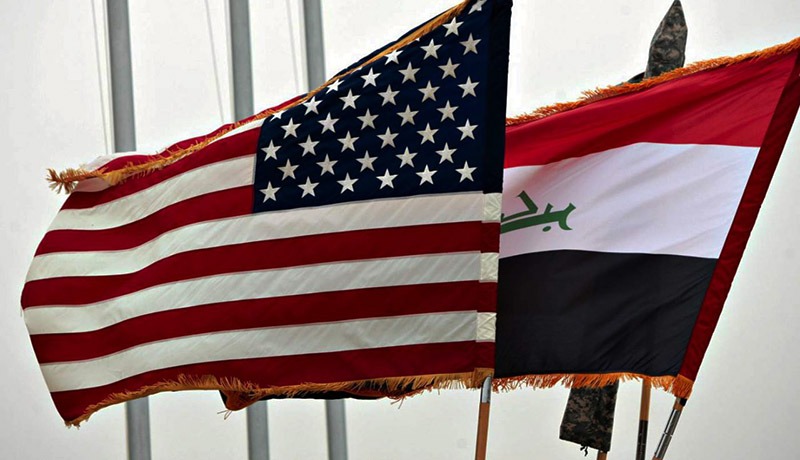In an interview with the Strategic Council on Foreign Relations, Ahmad Dastmalchian described the recent US actions in Iraq as an attempt and conspiracy to stage a military coup and destroy active Resistance groups in the country. He said: “After the inauspicious triangle of the United States, the Zionist regime and Saudi Arabia was defeated in proxy wars they carried out the second phase of their plans, which were to destabilize and weaken the authority of the central governments, disturb the peace and stability, and create anarchy in the Axis of Resistance.
Pointing to the escalation of the Lebanese and Iraqi governments’ confrontation with the corona crisis, he added: “This axis, and especially the United States, is pursuing these plans in Lebanon and Iraq with a specific scheme and goal. They want to influence the Axis of Resistance and put pressure on Iran by influencing it.”
US Intervention to Prevent the Resistance from Gaining Power
Dastmalchian described the heightening of the sanctions against Iran and the escalation of economic pressure aimed at destabilizing the people and creating discontent, and referring to recent US actions against Lebanon, said US interventions in Lebanon have entered the economic phase in recent months and they would not let people enjoy a relative calm and the Axis of Resistance to gain strength.
Referring to the recent situation in Lebanon, especially during the outbreak of coronavirus in the country and its social and economic consequences, the former diplomat continued: “The United States is trying to prevent the entry of foreign currency to strengthen the money structure by openly interfering in the internal affairs of this country. There are also reports on the blocking of Lebanese gold assets in New York which has totally affected the value of the country’s national currency.
US Plan to Cripple Lebanon’s Economy
Referring to the unrests in Iraq and Lebanon and the need for people to live up to their demands and improve the living standards, he said the US Senators plan to cut off economic aid to Lebanon in order to put economic pressure on the country and crippled its economy, he noted that the United States, Israel and Saudi Arabia were trying to divert the people’s legitimate demands, but again the resistance forces were able to form a new national government in Iraq and Lebanon.
Dastmalchian said: “In the current situation, the United States is trying to transfer projection and the crisis outside its borders due to its internal crises, so that it does not face any problems in the elections.” In fact, the government is looking for a way to distract the public from covering up its internal weaknesses. Certainly, the United States will continue to create crises, and we will see more and more movements in this country to destabilize the region.
He called the formation of government in the Zionist regime effective in increasing efforts to create tension for the Axis of Resistance and stressed that the Zionist regime can survive in a troubled region, because with the calm of the region, attention will be paid to the occupation of this regime.
Hashd al-Shaabi & Hezbollah; National Symbols of Resistance
Regarding the Pentagon’s order to its commanders in Iraq to plan for the destruction of Kataib Hezbollah (or Hezbollah Brigades), as well as pressure on Hezbollah in Lebanon, the former Iranian ambassador to Beirut said: All the different Lebanese groups and tribes love Hezbollah. In any case, the people will respect their national symbols, and this symbol cannot be influenced by foreign instincts; Especially in Lebanon, people see themselves in this symbol.










0 Comments